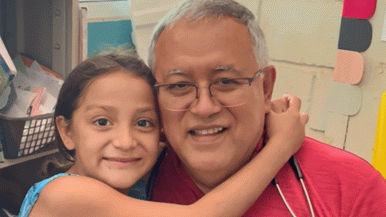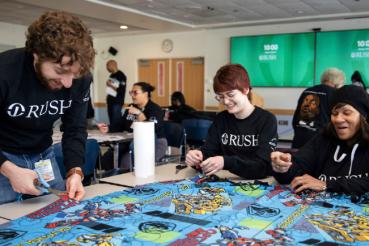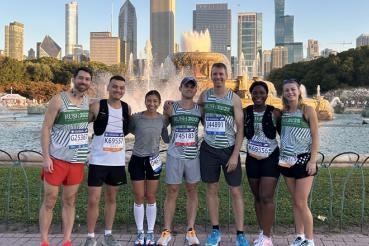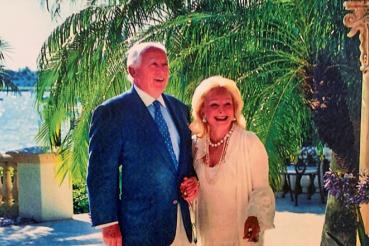Luis Bolanos, MD, went on his first mission trip 24 years ago — perhaps a little reluctantly — in response to repeated urging from his pastor. He helped construct homes after a hurricane devastated Honduras.
While helping build homes, the pediatrician discovered hundreds of children there who would benefit from his medical skills. Since then, he has enthusiastically gone on mission trips, sometimes twice a year.
“It’s indescribable — the feeling you get being there, working your butt off,” says Bolanos, a Rush doctor whose regular job is to treat children in Aurora. Because the Hondurans walk two to five hours to the clinic to be treated, the physicians don’t turn anyone away.
“You work until you’re finished seeing all of them,” he says, but he emphasizes, “I’ve received so much more than I’ve given. Nothing compares to going there.”
Now he is the one urging others to join him. He helps plan the trips, working with a church in Honduras that determines a safe place where they are needed. He and other physicians provide medical attention to residents, setting up a medical clinic that they use during the trip. In addition, the group builds homes and schools and brings shoes, clothes, soap, school supplies and Bible studies for the locals.
Praying for supplies
On their most recent trip, seven doctors treated more than 1,300 patients, including 820 who were there for medical check-ups, 232 who had their eyes examined and 265 who had various dental workups. Bolanos says he tracks these numbers not to impress people, but to know how many supplies they need. They typically give each patient — child or adult — two months of vitamins, and they hope their supplies will not run out before their line of patients ends.
“We pray for our safety — and for an increase in meds,” Bolanos says.
Each year, RUSH Copley Foundation provides funding for two residents from the Rush Copley Family Medicine Residency program to join Bolanos on the trip. This summer, second-year resident William Velasquez, MD, and third-year resident Joseph Rojas, MD, went, treating people using fewer resources than they have at the hospital.
With no lab work or imaging, they had to rely on their physical examination skills and listening to the patient’s medical history. Because their resources were limited, they had to carefully allocate medications to families who would benefit the most. And where they can typically schedule second visits to follow up with patients in their family medicine practice in Aurora, in Honduras they learned to treat patients in just one visit.
“It’s a good way to be able to use the skills we’ve learned and to give back to my community,” says Velasquez, whose family is originally from El Salvador.
Using skills and giving back
“It feels good to be able to help,” Rojas agrees. He appreciated getting to experience how grateful people were to be seen by physicians and for the medications they received. He recommends it to other residents to broaden their horizons and to learn how to practice medicine in a different setting.
Velasquez also encourages other health care professionals to consider the opportunity, including nurses and pharmacists.
While residents get to go once with support from the hospital, some of them have continued to go, paying their own way.
“It’s so important for residents to be exposed to that type of environment,” Bolanos says. They don’t have X-ray machines, echocardiograms or other medical tools. Instead they need to rely on their fingers, eyes and ears.
“It’s important for their development as physicians and human beings,” he says. “It’s an experience they won’t ever forget.”




